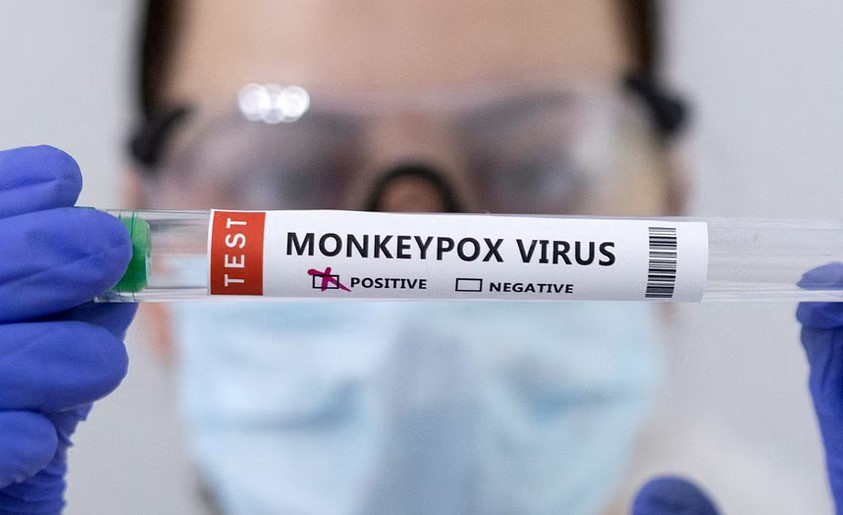Trump's Controversial NIH Pick: Lockdown Skeptic Jay Bhattacharya to Lead Medical Research?
President-elect Donald Trump's selection of Dr. Jay Bhattacharya, a Stanford University health researcher and outspoken critic of pandemic lockdowns, to head the National Institutes of Health (NIH) has sent shockwaves through the scientific community. This appointment, announced on Tuesday, November 26th, 2024, has ignited a fierce debate about the future direction of medical research in the United States.
Bhattacharya's Background and Controversial Views
Dr. Bhattacharya, a physician and health economist, is best known for his involvement in the "Great Barrington Declaration." This October 2020 open letter, which he co-authored, challenged widespread COVID-19 lockdowns, advocating for a strategy focused on protecting vulnerable populations while allowing others to build herd immunity through natural infection. This approach was widely criticized by many public health experts as unscientific and potentially harmful. His stance, along with his criticism of Dr. Anthony Fauci and other leading public health officials, placed him squarely in the crosshairs of those who felt he downplayed the severity of the pandemic and promoted dangerous narratives.
The Great Barrington Declaration and its Aftermath
The Great Barrington Declaration, while gaining traction among some, particularly those critical of lockdown measures, was roundly denounced by many in the scientific community. Then-NIH director Dr. Francis Collins described it as "dangerous" and outside the realm of mainstream science. The controversy surrounding the declaration illustrates the deep divisions that have marked the pandemic response and continue to influence public health discourse. The declaration itself is just one of several flashpoints, with Bhattacharya's broader criticism of pandemic policies also creating much controversy.
The NIH's Future Under Bhattacharya's Leadership
The NIH, with its annual budget of nearly $48 billion and its vast network of researchers, is the world's leading public funder of biomedical research. Bhattacharya's appointment, if confirmed by the Senate, could have profound consequences for the agency's priorities and funding decisions. Some fear he could dismantle existing programs, cut funding, and divert resources away from mainstream research. His appointment has made clear the stark contrast between the new administration's approach to health policy and that of the previous administration.
Potential for Restructuring and Policy Shifts
The Trump administration's plans for overhauling the federal government extend to the NIH. Proposals include streamlining the agency's structure, imposing term limits on leadership, and potentially allocating a portion of the NIH budget directly to states through block grants. These changes could significantly alter the way research is funded and conducted, potentially diminishing peer-review processes and introducing political influence into scientific decision-making. These issues have worried experts and researchers who value the integrity and independence of the NIH's research and funding programs.
Reactions and Concerns from the Scientific Community
Dr. Bhattacharya's nomination has elicited a wide spectrum of responses from the scientific community. While some, particularly those who share his views on pandemic response, see his appointment as a much-needed shake-up of the status quo, many others express deep concern. Critics, such as virologist Angela Rasmussen, have warned that his leadership would be "disastrous" for public health. Others like Dr. Ashish Jha, former White House COVID-19 Response Coordinator, offer a more measured perspective, acknowledging Bhattacharya's qualifications while also noting some problematic views.
A Divided Scientific Community
The stark differences in opinion highlight the polarization that has gripped public health during and after the COVID-19 pandemic. The concerns extend beyond the pandemic response. The Trump administration's stated intention of collaborating with Robert F. Kennedy Jr., another controversial figure with deep skepticism towards vaccines and other established medical practices, further fuels anxiety about the potential for political interference in the NIH’s work.
The intense criticism surrounding the Great Barrington Declaration highlights the clash of viewpoints within the scientific community on how to tackle major health crises. The deep concerns expressed by several scientists regarding the potential negative impact of Bhattacharya's policies on the scientific integrity of the NIH, serve as a strong warning.
A Pivotal Moment for American Science: Navigating the Storm Ahead
Dr. Bhattacharya's appointment marks a critical juncture for American science and public health. His nomination underscores the ongoing political battles surrounding scientific integrity and the role of government in shaping research priorities. The potential consequences of his leadership at the NIH are profound and far-reaching, and the Senate confirmation process will be a vital stage where these issues can be openly debated. The future direction of the NIH under Dr. Bhattacharya's potential leadership remains to be seen, but one thing is clear: this appointment has set the stage for a significant clash of ideas and approaches, the outcome of which will impact not only American science but global health research as well.
The upcoming confirmation hearings will be closely watched, as they promise to provide a platform for a thorough examination of Bhattacharya's qualifications, his perspectives on scientific integrity and the independence of the NIH and the broader implications of this unprecedented appointment for the future of American medical research. The success of the American people depends heavily on the outcome of this decision.

















